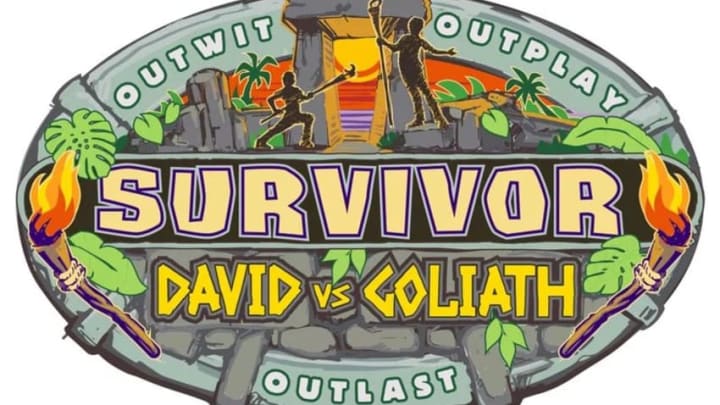After a couple of sub-par seasons, Survivor: David vs. Goliath showed us why this show has gone on for 19 years. This season continued to evolve the game of Survivor.
One of the key reasons why Survivor has lasted for 38 seasons is because the game constantly changes. Just as sports like football and baseball continue to change and evolve every year, Survivor is the same way. It started out as a show that focused on withstanding the elements of nature and having a fun adventure. Deceit and even the thought of forming an alliance to vote someone out were viewed as pure villainy!
Many years have passed, and Survivor is still here, but the game is almost unrecognizable from the first few seasons. While a modern season might show us a taste of how difficult it is to survive the elements, the game has shifted to a battle of wits. Strategy and masterful gameplay have taken the place of honesty and just being out there for the adventure.
This evolution of the game of Survivor is what keeps many fans interested year after year. We’re going to take a look at how each season changed the way this game is played. What better place to start than Survivor: David vs. Goliath, which has treated fans with a remarkable cast and an entertaining, top ten season.
Playing an idol doesn’t guarantee safety from a vote.
The Hidden Immunity Idol has changed forever with the Idol Nullifier. No longer can you feel 100% safe when you play an idol! Not only that, but players are going to be more cautious about revealing their idols to others (or at least we hope). The strategy of showing someone an idol to build trust just got a lot more dangerous.
We saw how impactful the Nullifier was in David vs. Goliath, as Carl played it perfectly to completely shock Dan. That advantage allowed the Davids to take out one of the leaders on the Goliaths and finally get back on even ground. The chances of having a Nullifier work that well again is extremely rare, but just the fear of someone having one can alter a player’s entire mindset.
Voting blocs are possible with first-time players.
A voting bloc is when a group of people comes together to vote out a common threat. These differ from alliances because they’re more short-term and usually change from Tribal to Tribal. Cambodia: Second Chance is the best example of voting blocs, and the same can be said about Game Changers. But that’s the thing, we’ve only seen prolonged voting blocs in returning player seasons.
Although there have been times we’ve seen voting blocs in first-timer seasons, including Millennials vs. Gen X, they have never been as clear as they were in David vs. Goliath. As soon as the Davids regained the majority, that’s when the strategy ramped up. First, it was Gabby and Christian aligning themselves to take out the Godfather of the game.
Then, Gabby agreed with the Goliaths that Christian was a massive threat, and decided to join them for a vote to get him out. We all know how that worked out, as Davie and Nick formed an ‘alliance’ with Mike and Angelina. The next vote saw Mike stick to that new voting bloc, sending Christian home. Then, Mike and Angelina abandoned that alliance to vote out Davie.
That’s four straight votes of utter confusion! You really need a map to understand how everyone’s allegiances shifted throughout those votes, which is what makes these types of seasons so entertaining. Hopefully David vs. Goliath isn’t just an isolated case. Future players should look at this season and realize the value of shifting allegiances to eliminate their biggest threat.
Sharing idols and advantages within an alliance can overpower a majority.
How can a majority alliance be defeated? We’ve seen this happen in several seasons, from Marquesas to Samoa and even Cook Islands. Usually, it requires the minority to persuade members who are at the bottom of the dominant alliance to flip. That didn’t happen in David vs. Goliath. The Davids were down seven to five, but they played an idol and two advantages in order to level the playing field.
Never have we seen an entire tribe lay everyone’s advantages out on the table to openly discuss the best way to use them. The trust they formed enabled them to share that vital information with each other, allowing the Davids to blindside John and Dan even though they didn’t have the numbers to do so. We might never see a tribe like the Davids again, but they proved to the audience how the effectiveness of an advantage increases if the entire alliance can decide together how to use it.
Only time will tell how these game-changing moments will influence future seasons, but it’s clear that David vs Goliath was a unique season that revolutionized the game of Survivor in a way that doesn’t happen often.
